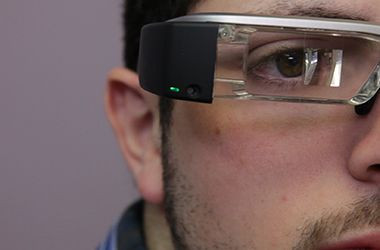Smartglasses Could Wipe Out Smartphones Soon, Taiwanese Company Claims

KEY POINTS
- A Taiwanese smartglasses company chairman believes smartglasses will soon replace smartphones
- This is because of new technologies that are seen to drive demand for smartglasses
- Several big name tech companies, including Apple, are working on smartglasses
A Taiwanese technology company chairman believes that smartglasses will be widely used in the future, so much that it can effectively replace people's need for smartphones.
Tom Liang, chairman for both Taiwanese smartglasses designer Jorjin Technologies and the Taiwan Smart Glasses Industry Association, believes that by the year 2023, smartglasses with AR/MR technologies will be able to replace smartphones, Digitimes reported.
Jorjin Technologies is known as the designer of Epson's recently released AR smartglasses, which can be used for media playback when paired with a smartphone. Jorjin has partnered with Taiwanese Chunghwa Telecom to sell the device in Taiwan, and has also partnered with Chinese telecom carrier China Mobile to sell the device in China.
Liang estimates that the AR Glasses market scale will have doubled or even tripled by the end of 2019. He added that with the commercialization of 5G, the market scale will even grow bigger. The company chairman believes that, with help from new technologies especially coming from Qualcomm, the demand for smartglasses will “pick up dramatically” in the next few years.
The technology Liang referred to is known as the Snapdragon XR2 processor, which Qualcomm revealed very recently. The Snapdragon XR2 platform supports extended reality (XR) technologies, and boasts of better and faster performance compared to its predecessor.
The Snapdragon XR2 offers twice the CPU and GPU performance of the current XR platform. It also offers support for seven concurrent cameras and a dedicated computer vision processor. That said, it offers four times more video bandwidth, six times higher resolution, and 11 times AI performance improvements compared to the existing XR platform.
Qualcomm's new Snapdragon XR2 is also the first of its platforms to enable low-latency camera pass-through to enhanced MR experiences. Smartglasses with this platform will allow users to enjoy seeing and interacting with the real world enhanced with virtual elements.
Liang expects this platform to drive up demand and increase sales in the near future. He also expects devices carrying such technologies to sell for around $500, making it accessible to the public.
The Jorjin Technologies chairman's predictions fall in line with reports of various companies clamoring to create AR/MR smartglasses. Huawei previously released fashionable smartglasses that can work with the iPhone. Facebook is currently working on smartglasses designed to replace smartphones. Apple is also expected to release several smartglasses in the near future.
© Copyright IBTimes 2024. All rights reserved.





















